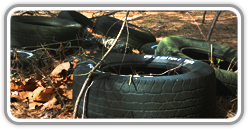There are new promising technologies that allow the recovery of energy in waste
and transform it into useable products
like electricity and biofuels.
WES is a leader in these technologies and a major player in the implementation to both businesses and governments in developing countries.
The technologies which are both environmentally friendly and economically sound allow the clean processing of all types of wastes including forestry crops and residues, industrial residues, biomass, municipal solid waste, toxic waste and many others.
The waste can be transformed into many types of alternate energies including electricity, jet fuel, and steam.
Municipal Solid Waste
Food waste, yard waste and product packaging are the perfect feedstock for “Plasma Gasification”. WES International has developed proven technology to reduce the need for landfills converting our everyday garbage into a very profitable source of energy.
Learn more
Biomass Waste
Agricultural and animal waste are great sources of energy. Using technologies such as “Fast Pyrolysis”, WES can process this material into valuable sources of energy.
Let us show you how we can turn rice husk, sugar cane bagasse, or plain hardwood waste, just to mention a few, into electricity and bio-fuels ...

Medical Waste
If disposing of Medical Waste and these type of materials are a significant expense for your company, we can help!
We have many models to fit different needs of disposing hazardous materials safely and economically, generating a minimum of emissions.

Tires & Industrial
Despite the effort to recycle tires, it continues to be one of the most problematic sources of waste. Disposed tires are not only an eyesore but a perfect environment for mosquitoes and rodents.
We see tires from a different perspective!
Rubber has one of the highest energy values, making it a perfect feedstock for electricity generation ...

Energy Crops
We all know today’s energy supply is largely based on fossil fuels and nuclear power. These resources have contributed to environmental disasters and due to uncertain availability fossil fuels are unsustainable and create instability.
Renewable energy gives humanity the chance to reduce carbon emissions and will provide a more diversified and balanced blend of energy sources. However, the use of food crops such as corn and sugar cane for the production of bio-fuels has caused worldwide controversy.
Moving away from food crops, biomass energy has now become one of the most dynamic aspects of the energy arena and governments around the world are seeking to change regulatory structures encouraging the development of biomass to energy projects...

WES' Nestor Vela stands next to a 10' tall crop of Miscanthus (Sept. 2011).
Biochar: a biomass byproduct
Biochar is a charcoal-based soil amendment produced by pyrolysis of waste biomass. This material presents a fine-grained, highly porous structure that helps soils retain water and nutrients.
According to the International Biochar Initiative, Biochar is found in soils around the world as a result of vegetation fires and historic soil management practices. Intensive studies of rich dark soils in the Amazon called “terra preta” has led to a great appreciation of the properties of this unique material as a soil conditioner.
When biochar is buried in the ground as a soil amendment, it becomes carbon negative. In other words, this is carbon that will stay in the ground for hundreds or thousands of years without reaching the atmosphere ...

A fresh batch of WES biochar.
latest news
March 10, 2012
PRESIDENT OBAMA'S
WEEKLY ADDRESS:
Investing in a Clean Energy Future
March 5, 2012
Biomass Pilot-Plant in Colombia Update
WES International's pilot plant in Colombia is on schedule and will be online this summer.